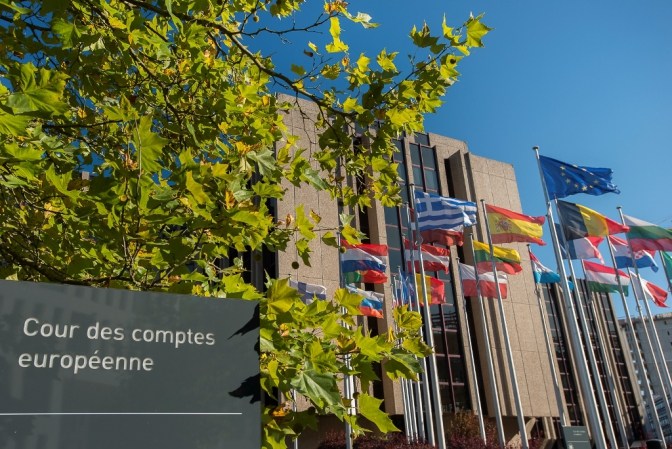The European Court of Auditors (ECA) has signed off the 2019 accounts of all 41 EU agencies as reliable and confirmed that they are playing an increasingly important part in the Union.
The EU agencies are separate legal entities set up to carry out specific technical, scientific or managerial tasks to support the EU institutions. The executive agencies are located at the seats of the European Commission in Brussels and Luxembourg but the majority of agencies are decentralised and located in the Member States.
In this year’s annual report, published last week (22 October), the auditors gave all agencies an unqualified or clean audit opinion as regards their income and spending – except for some issues affecting payments by the Agency for the Cooperation of Energy Regulators (ACER) in Slovenia and the EU Asylum Support Office (EASO) in Malta.
The total amount paid out irregularly by ACER in 2019 under two frameworks contracts signed in 2018 was €988 000 or 6,3 % of all payments made by the agency in 2019.
EASO, with a workforce of 296 and an annual budget of €118 million is still affected by its irregular procedures in the past. The total amount paid out irregularly by the agency in 2019 was about € 14 million or 14,6 % of all payments in that year, almost all of it stemming from 2016-2018 irregular procurement procedures.
The audit team explained that EASO continues to pay out salaries or, to a small extent, indemnities to staff that was recruited under irregular procedures.
“Nonetheless, the contracts that were entered into by the agency remain legally binding which is why the payments continue to be made until the contracts are completed or otherwise terminated. In case of termination, it may give place to indemnities,” the team added.
Within the new asylum and migration pact in next budget period (2021 – 2017), EASO will become the EU Agency for Asylum with wider tasks and a proposed budget exceeding €1 billion for the whole period.
On the positive side, EASO has made some effort to improve its internal control systems and its governance processes. In 2019, it re-established an internal legal service and recruited its first ex-post controller. It still lacks an internal auditor and has not decided yet if it should share internal audit capability with other EU bodies functioning in the same policy area.
Another matter concerns “revolving doors”. ECA reports that the executive director of the European Banking Authority (EBA) resigned in 2019 to take on the role of Chief Executive Officer of the Association for Financial Markets, which represents the finance industry in Europe. Such moves are regulated in article 16 of the Staff Regulations.
The European Ombudsman found after an inquiry that, “Forbidding the job move would have been a necessary and proportionate measure in this particular case.”
A Commission spokesperson told The Brussels Times that it is up to the agencies to follow-up on the audit findings and ECA’s recommendations. “The Commission will monitor the agencies’ follow-up in its role as member of the Management Boards of the agencies.”
Overall performance
For the first time, the ECA also published a special report where it assessed how well the EU has enabled the agencies to deliver its policies for the public good. According to the auditors, there is a need for more networking and cooperation – as well as more flexibility in the set-up, functioning and possible winding-up of agencies.
“Like every year, we examined the financial management of all EU agencies and we found their accounts in sufficiently good shape,” said Alex Brenninkmeijer, the ECA member responsible for the reports at a press briefing.
As regards financial management, the auditors repeated previous observations and highlighted the need for agencies to further improve the management by focusing on, among other things, public procurement, conflicts of interest and recruitment procedures.
Having focused in the past on the performance of individual agencies, the ECA has now identified two key criteria for all EU agencies to contribute more effectively to EU policy. The number of agencies has increased over the years and in some policy areas there are multiple agencies, which can lead to overlap between their mandates and/or activities.
The auditors also found, to express it carefully, that their potential as centres of expertise and networking for the implementation of EU policies is not fully exploited. At some agencies, the auditors observed overly complex or weak governance arrangements.
For example, the management boards of some agencies are quite large, risking at times inefficient decision-making and considerable administrative costs. Moreover, while the management boards’ composition allows many national views to be taken into account, it does not guarantee commitment on the part of member states.
The audit also suggests that some agencies would have been able to perform their role more fully if they had received more support from member States, industry, the commission or other agencies.
Some risks flagged by the auditors have implications from both the financial and the performance perspective – for example the inadequacy of human and financial resources in some cases. Certain agencies are overly dependent on external contractors for critical functions, which brings the risks associated with public procurement.
Others might not be sufficiently proactive – for regulatory or governance reasons – to adapt their work programme or budget to rapidly changing environments. Lastly, while some agencies are chronically under-resourced, others are unable to use up their annual budgets. ECA member Brenninkmeijer did not exclude a closer examination of their fee- and revenue systems.
M. Apelblat
The Brussels Times

